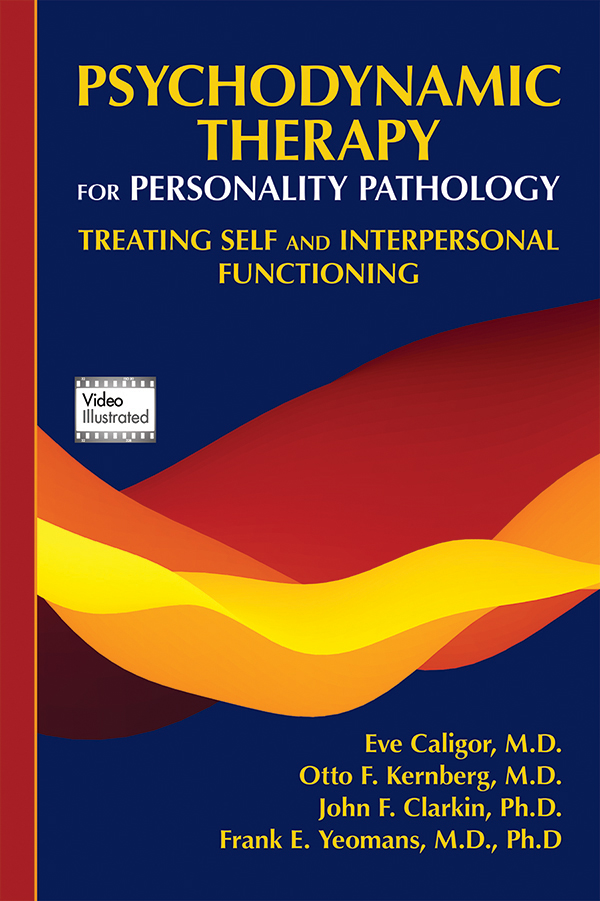Chapter 5.The Therapeutic Relationship: The Therapist’s Attitude and Stance, the Therapeutic Alliance, Transference, and Countertransference
Sections
Excerpt
All psychotherapies are deeply embedded in the patient-therapist relationship, and it is generally agreed that this relationship serves not simply as context for the treatment but also as a central vehicle of change. With this in mind, in transference-focused psychotherapy—extended (TFP-E), the therapeutic relationship is structured in a very particular fashion that is closely linked to the overall treatment objectives and to our understanding of the processes that lead to clinical change. The therapist’s attitude and stance are designed 1) to facilitate the development of a therapeutic alliance and at the same time to promote the unfolding of the patient’s conflictual internal object relations in the treatment; and 2) to enable the therapist to intervene in a fashion that promotes the patient’s ability to reflect on, and ultimately to explore, contain, and contextualize, these object relations within a progressively coherent and well-integrated self experience.
Access content
To read the fulltext, please use one of the options below to sign in or purchase access.- Personal login
- Institutional Login
- Sign in via OpenAthens
- Register for access
-
Please login/register if you wish to pair your device and check access availability.
Not a subscriber?
PsychiatryOnline subscription options offer access to the DSM-5 library, books, journals, CME, and patient resources. This all-in-one virtual library provides psychiatrists and mental health professionals with key resources for diagnosis, treatment, research, and professional development.
Need more help? PsychiatryOnline Customer Service may be reached by emailing [email protected] or by calling 800-368-5777 (in the U.S.) or 703-907-7322 (outside the U.S.).



